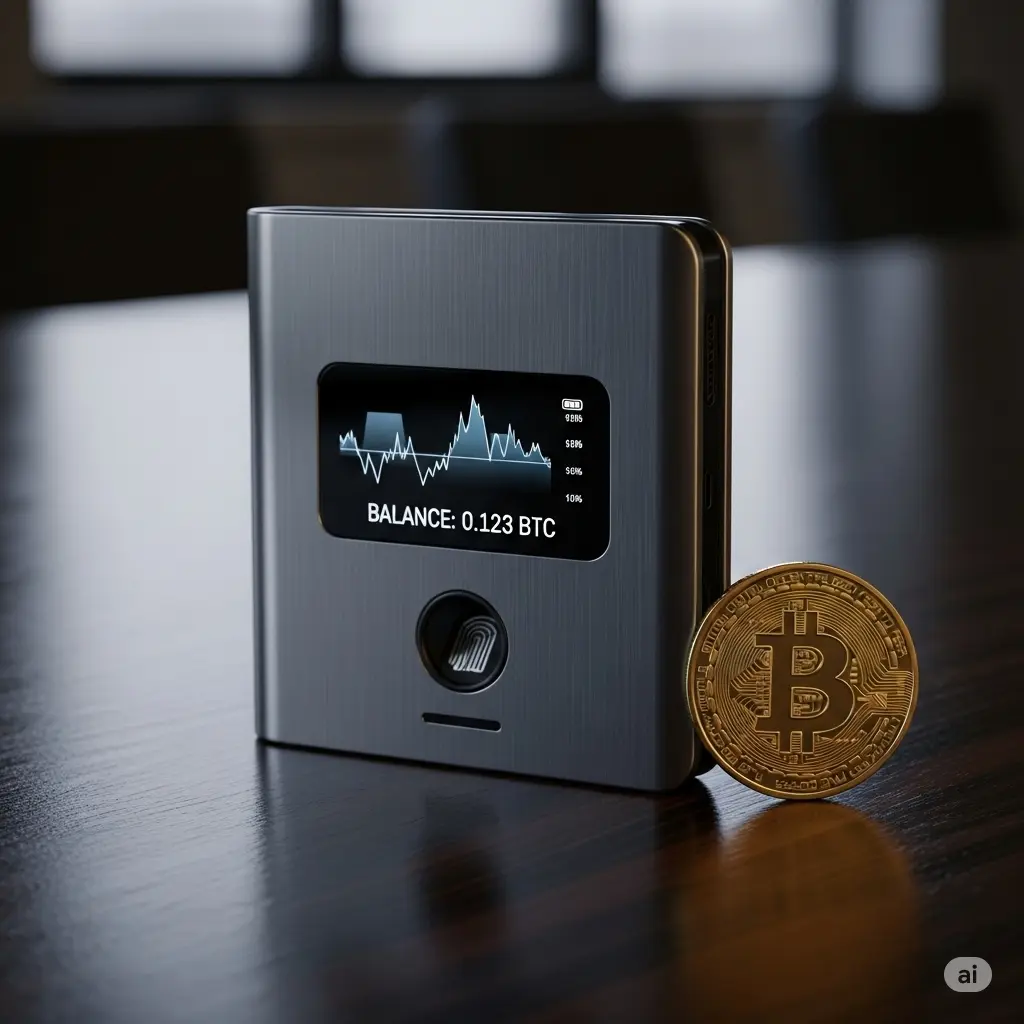Secret Secure Crypto Wallet for Elite Protection of Your Assets
In the fast-evolving world of digital currencies, safeguarding your cryptocurrency assets has never been more critical. With hackers becoming increasingly sophisticated and cyber threats on the rise, the need for a secure crypto wallet is paramount for both beginners and seasoned investors alike. This comprehensive guide explores everything you need to know about securing your crypto holdings, diving into the world of secret secure wallets designed for elite protection.
Whether you’re a casual trader or a serious investor following Global Crypto Sports trends, understanding how to pick and use the best crypto wallet 2025 can save you from devastating losses. From cold wallets to hot wallets, hardware wallets, and mobile wallets, we’ll cover all the options and strategies you need to know for top-notch crypto wallet security.
What is a Secure Crypto Wallet?
A crypto wallet is a tool that allows users to store and manage cryptocurrencies like Bitcoin, Ethereum, and thousands of altcoins. Unlike physical wallets, crypto wallets don’t hold currency but rather store the private keys—the secret codes that grant access to your coins on the blockchain.
A secure crypto wallet prioritizes the protection of these private keys, preventing unauthorized access, theft, or loss. Wallets come in various forms, each balancing convenience and security differently:
- Cold wallets are offline storage solutions, highly secure but less convenient for frequent transactions.
- Hot wallets are connected to the internet, making them easier to use but more vulnerable to hacks.
Understanding these categories and their subtypes is key to protecting your digital assets.

Why Secure Crypto Wallets Matter Now More Than Ever
The explosive growth of cryptocurrency and blockchain technology has opened new investment opportunities, but it also attracts cybercriminals targeting your digital wealth. Unlike traditional bank accounts, cryptocurrency wallets are not insured or regulated by any authority, making wallet backup and security essential.
Moreover, as DeFi (Decentralized Finance) and Web3 ecosystems grow, so do the risks. Without a proper decentralized wallet that safeguards your private keys, you risk losing everything in a hack or technical failure.
In this article, you’ll learn:
- What a secure crypto wallet is and why it’s important
- Different types of wallets and their pros and cons
- How to choose the best crypto wallet for your needs
- Practical tips for boosting wallet security
- Real-world examples highlighting wallet safety
- Answers to common questions beginners often ask
Key Crypto Terms You Should Know
Before diving deeper, let’s clarify some essential terms:
- Blockchain: A decentralized, public ledger recording all cryptocurrency transactions, making them transparent and immutable.
- DeFi (Decentralized Finance): Financial services built on blockchain networks without intermediaries like banks.
- Web3: The next generation of the internet, incorporating decentralized applications (dApps) and blockchain technology.
- Private Key: A secret code that allows you to control and spend your cryptocurrency. Losing this means losing access to your funds.
- Public Key: The address you share with others to receive crypto funds, derived from your private key.
Types of Crypto Wallets Explained
1. Cold Wallets
Cold wallets store your private keys offline, protecting them from online hacking attempts.
Examples:
- Hardware Wallets: Physical devices like Ledger Nano X or Trezor that store private keys securely and connect to your computer or smartphone only when needed.
- Paper Wallets: Physical printouts or handwritten private keys and public addresses stored offline.
Pros:
- Highest security level
- Immune to online attacks
- Ideal for long-term storage
Cons:
- Less convenient for daily trading
- Risk of physical damage or loss
2. Hot Wallets
Hot wallets are connected to the internet, offering quick access but greater risk.
Examples:
- Mobile Wallets: Apps like Trust Wallet or MetaMask, allowing easy access on smartphones.
- Desktop Wallets: Software installed on computers, such as Exodus.
- Web Wallets: Browser-based wallets accessible anywhere but depend on third-party security.
Pros:
- Convenient and fast access
- Supports DeFi and Web3 integration
- User-friendly for beginners
Cons:
- Vulnerable to hacking and phishing
- Requires strong passwords and 2FA for safety
3. Decentralized Wallets
Decentralized wallets give you full control over your keys without relying on a third party. They integrate seamlessly with dApps and DeFi platforms.
Examples: MetaMask, Trust Wallet
Benefits:
- User sovereignty
- No reliance on centralized exchanges
- Enhanced privacy and security
How to Choose the Best Crypto Wallet 2025
With numerous options available, picking the right wallet depends on your individual needs and risk tolerance. Here are key factors to consider:
Security Features
- Private Key Control: Always choose wallets that allow you to control your private keys directly.
- Two-Factor Authentication (2FA): Adds an extra security layer.
- Backup and Recovery Options: Ensure you can restore your wallet if lost or stolen.
- Open-Source Software: Transparent code is usually safer as the community can audit it.
Convenience
- Frequency of Use: Cold wallets for long-term holding; hot wallets for active trading.
- Compatibility: Check support for your coins and integration with exchanges or DeFi apps.
- User Interface: Beginners benefit from intuitive designs.
Reputation
- Look for wallets with positive reviews, strong developer teams, and active support communities.

Practical Tips to Maximize Your Crypto Wallet Security
- Use Cold Storage for Large Holdings: Keep the majority of your assets in hardware or paper wallets offline.
- Create Strong Passwords and Use 2FA: Never reuse passwords and always enable two-factor authentication.
- Regular Wallet Backup: Store backups securely in multiple locations (e.g., encrypted USB drives).
- Beware of Phishing Attacks: Always verify URLs and avoid clicking suspicious links.
- Update Your Wallet Software: Keep firmware and apps updated to patch vulnerabilities.
- Use Multi-Signature Wallets: Require multiple keys to approve transactions, adding a security layer.
How a Hardware Wallet Saved Thousands
In 2024, a well-known crypto investor narrowly avoided a major hack. Their hardware wallet—disconnected from the internet—protected their Bitcoin during a phishing attack that compromised their email and exchange accounts. This incident underscores why cold wallets remain the best crypto wallet 2025 option for serious investors.
Pros and Cons of Different Wallet Types
| Wallet Type | Pros | Cons |
|---|---|---|
| Hardware Wallet | Ultra-secure, offline storage | Initial cost, less convenient |
| Paper Wallet | Free, offline, immune to hacking | Easily lost or damaged |
| Mobile Wallet | Easy to use, quick access | Vulnerable if phone is hacked |
| Desktop Wallet | Good security, supports many coins | Vulnerable if computer is infected |
| Web Wallet | Accessible anywhere | Dependent on third-party security |
FAQ: Secure Crypto Wallet
Q1: What is the difference between a cold wallet and a hot wallet?
A: Cold wallets are offline and highly secure, while hot wallets are online and more convenient but riskier.
Q2: How do I backup my crypto wallet safely?
A: Use encrypted backups, store recovery phrases offline in secure locations, and consider physical backups like metal seed phrase storage.
Q3: Can I recover my funds if I lose my hardware wallet?
A: Yes, if you have your recovery seed phrase safely stored, you can restore your wallet on another device.
Q4: Are decentralized wallets safer than centralized exchanges?
A: Generally, yes. Decentralized wallets give you full control, whereas centralized exchanges hold your private keys and are vulnerable to hacks.
Q5: What is the best crypto wallet for beginners?
A: Mobile wallets like Trust Wallet or MetaMask are beginner-friendly, but consider adding a hardware wallet for larger holdings.
Q6: How often should I update my wallet software?
A: Always install updates as soon as they are available to ensure you have the latest security patches.
Q7: Is a hardware wallet necessary if I only hold a small amount of crypto?
A: Not necessarily, but it’s good practice for higher security if your investment grows.
Final Thoughts: Protect Your Crypto Assets with Confidence
In 2025, as cryptocurrencies continue to shape the future of finance, protecting your assets is non-negotiable. Choosing the right secure crypto wallet is the first step toward elite protection of your digital wealth. Whether you’re trading daily or holding long-term, blending the convenience of hot wallets with the security of cold wallets offers a balanced strategy.
Stay informed by following updates on Global Crypto Sports and similar trusted sources. Remember, your crypto security is only as strong as your weakest link—invest in your wallet’s safety and secure your financial future.
Ready to secure your crypto assets like a pro? Start by exploring trusted hardware wallets, backing up your keys properly, and adopting strong security habits today.
If you found this guide helpful, share it with your crypto community and help others protect their assets!
